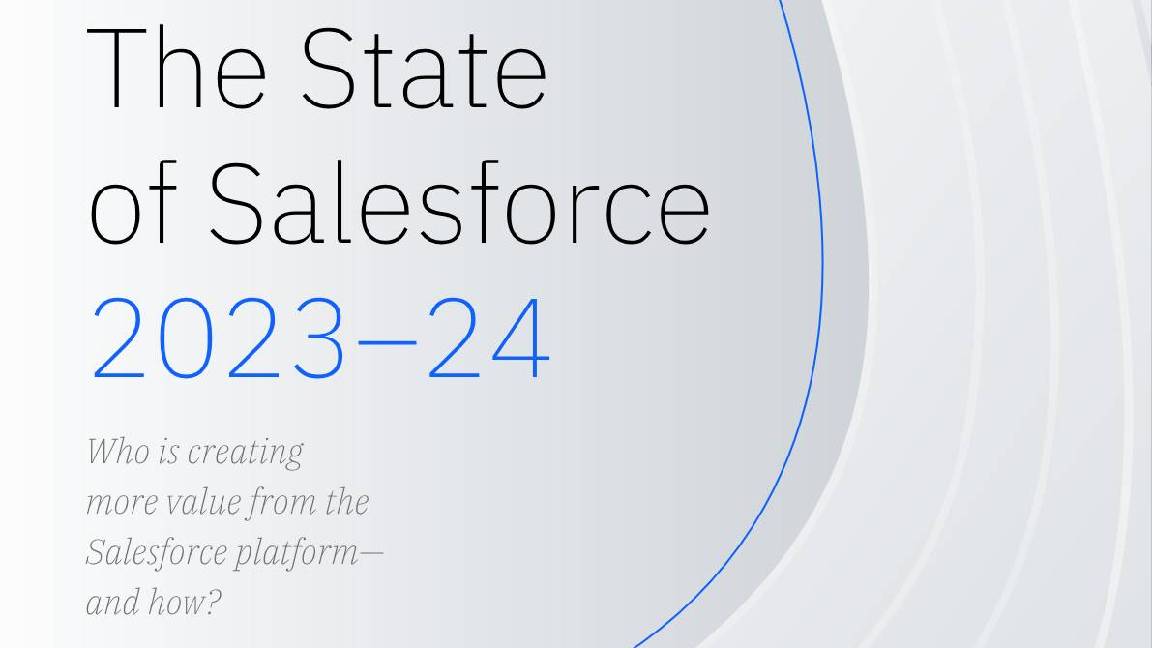Dark clouds won't dampen Salesforce's optimistic AI push
Salesforce reiterated its data-focused plan for AI at World Tour London, as it pitched its future against a backdrop of investor concern

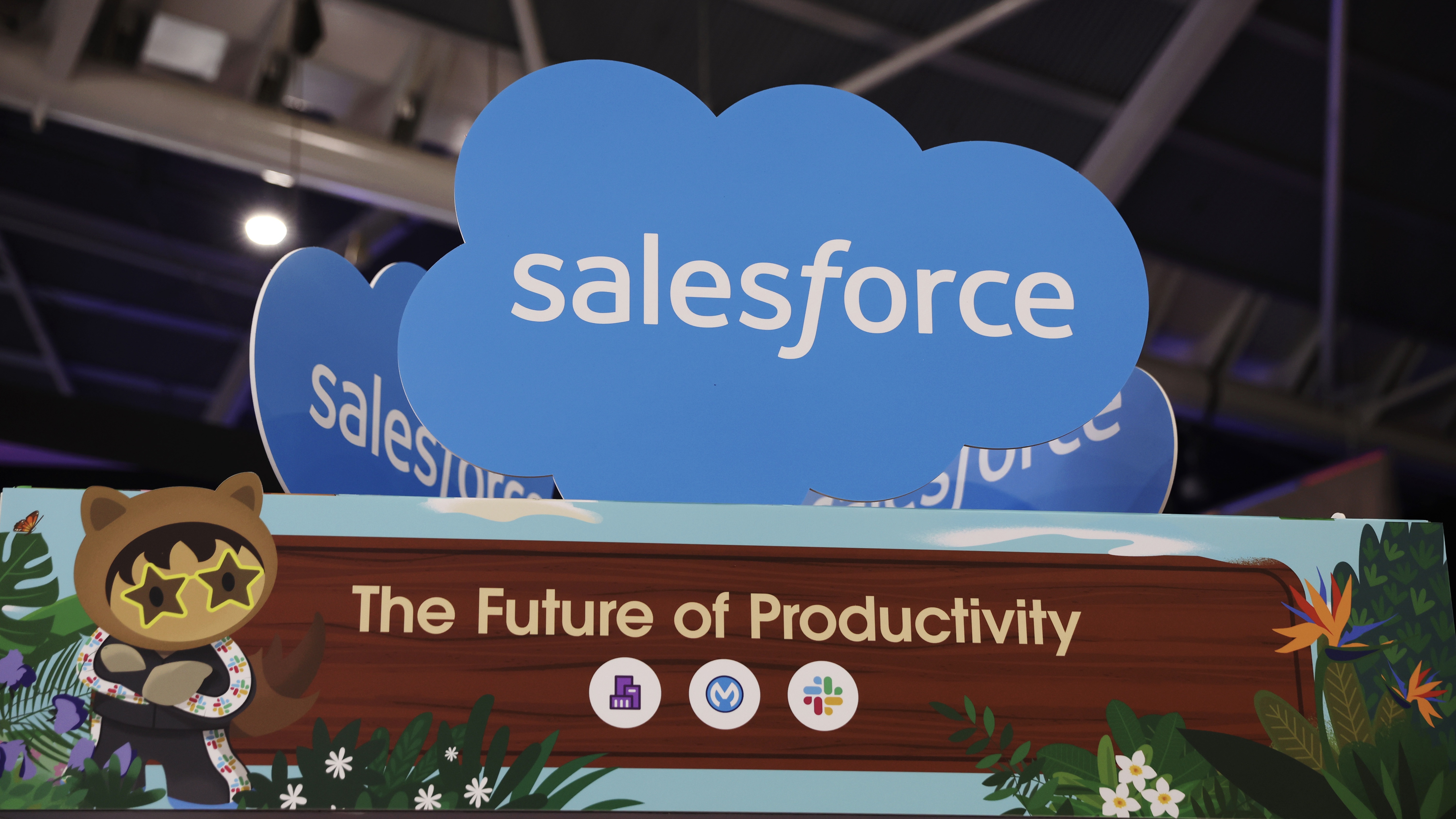
Salesforce struck an optimistic chord about its AI enterprise products at Salesforce World Tour London, even as the CRM giant stood against a backdrop of missed revenue expectations and a drastic drop in share price.
Focusing on its ambitions in the conference’s opening keynote, which unpacked how its suite of products can help a business “become an AI enterprise”.
Zahra Bahrololoumi, UK and Ireland CEO at Salesforce, took to the stage with a self-described mission to “motivate,” “educate,” and “inspire” the 17,500 people registered to attend the conference in the UK’s capital.
“We're in the middle of an AI revolution, folks, and it is changing everything. It will change how we interact with our customers, and it will change how we run our businesses,” she says.
This kind of speech on AI is becoming standard at tech conferences, with the ‘AI revolution’ having become a talking point in earnest with the surge in generative AI hype around November 2022. But Salesforce looks to stand out from its competitors by focusing on the data requirements customers will face and its own pedigree in the field, rather than blue sky thinking over the future of AI.
The firm is leaning on its decade of experience in enterprise AI to argue it can deliver on helping customers on that journey. Salesforce’s Einstein AI, first released in 2016, remains core to the firm’s AI strategy having received sweeping updates such as Einstein Copilot in 2023.
Data is central to Salesforce's AI pitch
With access to a business’s proprietary data, generative AI tools can create more meaningful returns for organizations and produce more accurate outputs. The “great news”, as Bahrololoumi added, is that enterprises are sitting on vast quantities of data already.
Sign up today and you will receive a free copy of our Future Focus 2025 report - the leading guidance on AI, cybersecurity and other IT challenges as per 700+ senior executives
“Salesforce was absolutely built for this moment. It feels like everything we've done over the last 25 years has brought us to this moment,” Bahrololoumi says.
Cue Salesforce’s pitch to the crowd, rooted in the firm’s strong, existing data credentials exemplified by its Data Cloud product and its proprietary AI model, Einstein.
Salesforce’s Data Cloud Vector Database, now generally available, allows Salesforce customers to analyze unstructured data sets such as enterprise emails or transcripts of work calls. This analysis can be used to ground a large language model (LLM), inform data-driven business decisions, or provide the foundation for enterprise automation.
Vector search is a core element of retrieval-augmented generation (RAG), a framework through which authoritative, vectorized data is connected to an AI model to provide extra context for all of its outputs.
But while the offering will be welcomed by Salesforce customers, there's a sense the firm is already playing catch-up with vector search in the enterprise. The technology is already being used by the likes of Oracle via its Vector AI Search and Dell Technologies recently emphasized the importance of the approach.
Taking to the stage after Bahrololoumi, Salesforce UK VP Justin Wilson compared the platform to the experience of organizing books in a library.
“When you went to an old school library, you would have the books organized by genre, by author, and then A to Z, and that's kind of like your structured data. The content within the books is like the unstructured data,” Wilson says.
AI hasn't paid off for Salesforce yet
Despite its confident approach in the keynote, Salesforce hasn't yet translated AI promises into significant customer spending.
In its recently-announced Q1 results for the fiscal year 2025, Salesforce marked revenue up 11% year over year at $9.13 billion. This fell short of Wall Street predictions, as reported by CNBC, with the London Stock Exchange Group (LSEG) having expected $9.17 billion in revenue.
With the results setting off concerns from investors, Salesforce shares dropped 20%, in the firm’s worst trading day since 2004. Analysts from Morgan Stanley told Reuters that generative AI investment has not yet improved Salesforce’s results, and “ increasingly becomes a point of competitive concern” for the firm.
In this context, Bahrololoumi’s speech could be seen as a pitch for the continued relevancy and influence of Salesforce within the sector, with its effectiveness at AI acting as an indicator of its potential for success going forward.
RELATED WHITEPAPER
Salesforce certainly has established credentials when it comes to streamlining processes, automation, and data analytics. But though its pedigree and wide-reaching customer base will serve it in good stead as AI becomes more ubiquitous, the company’s continued success will ride on the extent to which it can leverage value in the short-to-medium term.
It’s clear Salesforce is looking to diversify with AI and invest on several fronts to meet customers where they are, having unveiled a new AI center in London alongside a plan to expand its Data Cloud service on HyperForce in the region. In leaning into its strengths and emphasizing its track record, the firm avoids falling into the trap of direct comparison with competitors over specific technological leaps.
Though the firm didn’t unveil anything particularly groundbreaking, it made a compelling pitch at Salesforce World Tour London. With its strong track record and clearly defined AI offerings, Salesforce is convincing in its drive for AI – if not entirely inspiring for its investors yet.

George Fitzmaurice is a former Staff Writer at ITPro and ChannelPro, with a particular interest in AI regulation, data legislation, and market development. After graduating from the University of Oxford with a degree in English Language and Literature, he undertook an internship at the New Statesman before starting at ITPro. Outside of the office, George is both an aspiring musician and an avid reader.
-
 What the UK's new Centre for AI Measurement means for the future of the industry
What the UK's new Centre for AI Measurement means for the future of the industryNews The project, led by the National Physical Laboratory, aims to accelerate the development of secure, transparent, and trustworthy AI technologies
-
 Meta's huge capex spree shows it's struggling to keep pace with Google and OpenAI
Meta's huge capex spree shows it's struggling to keep pace with Google and OpenAINews Meta CEO Mark Zuckerberg promises new models this year "will be good" as the tech giant looks to catch up in the AI race
-
 ‘They’re more productive than ever’: Marc Benioff says hiring in software engineering is ‘mostly flat’ at Salesforce because of AI – but the company is expanding headcount in one key area
‘They’re more productive than ever’: Marc Benioff says hiring in software engineering is ‘mostly flat’ at Salesforce because of AI – but the company is expanding headcount in one key areaNews Salesforce CEO Marc Benioff has revealed hiring for software engineering has dipped as a result of AI, but the CRM giant is ramping up recruitment in other key areas to push its agentic agenda.
-
 Salesforce opens up Agentforce 360 for partners to drive agent development
Salesforce opens up Agentforce 360 for partners to drive agent developmentNews Salesforce has opened up its Agentforce 360 platform to allow partners to build and sell AI agents and applications.
-
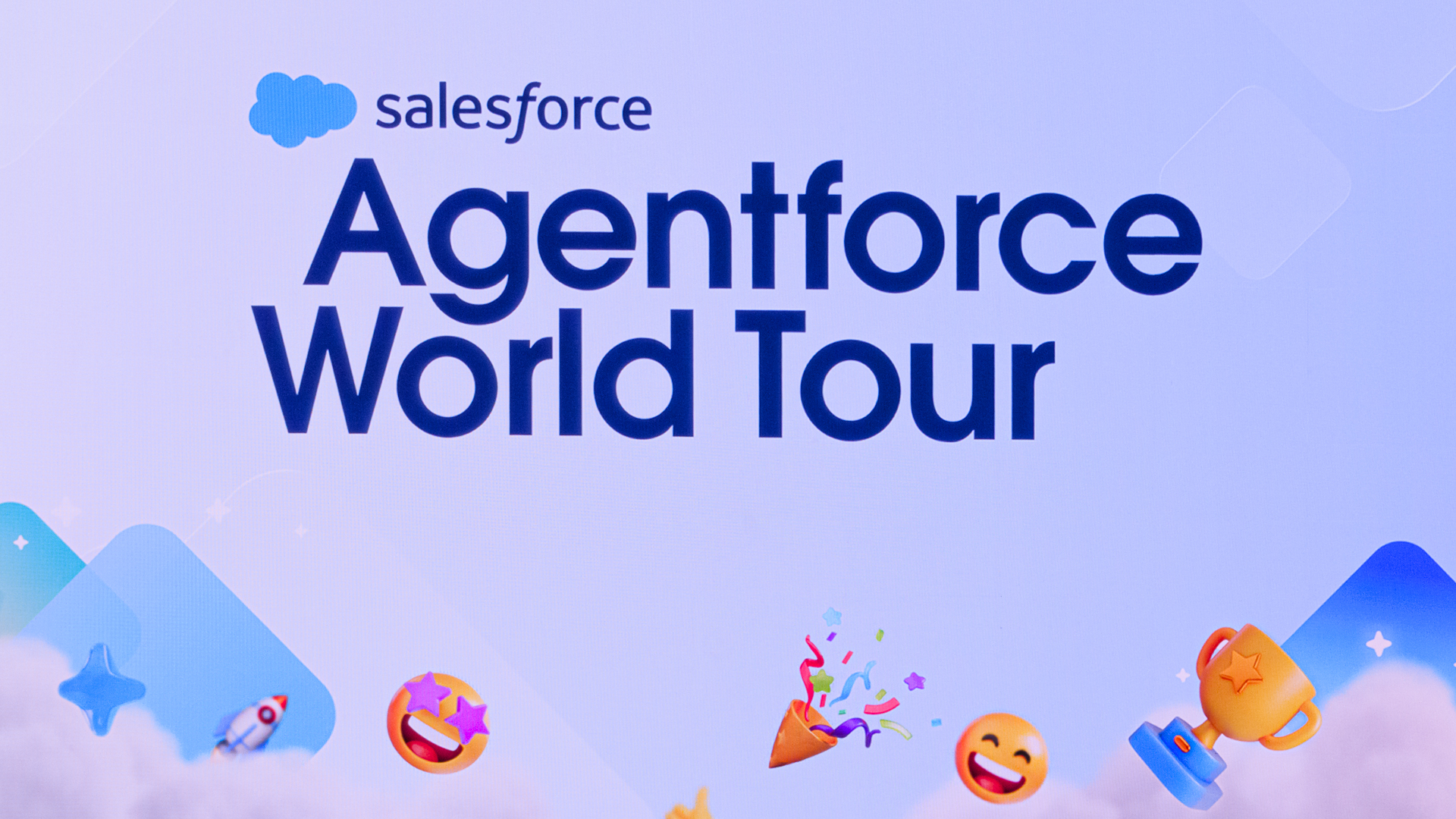 Salesforce targets better data, simpler licensing to spur Agentforce adoption – and its acquisition of Informatica is key
Salesforce targets better data, simpler licensing to spur Agentforce adoption – and its acquisition of Informatica is keyNews The combination of Agentforce 360, Data 360, and Informatica is more context for enterprise AI than ever before
-
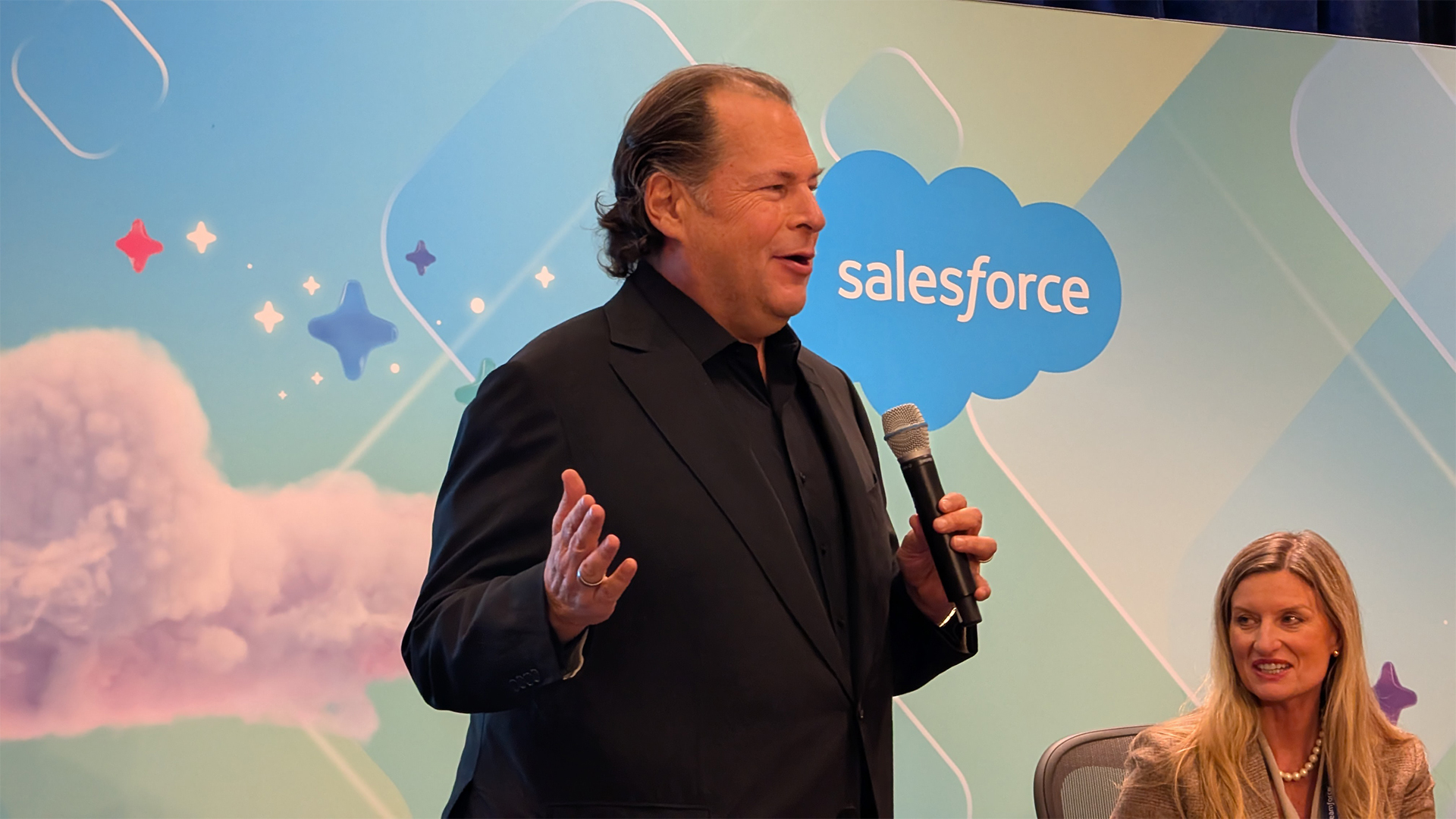 Salesforce could become the king of enterprise AI – but only if customers believe in its potential
Salesforce could become the king of enterprise AI – but only if customers believe in its potentialAnalysis At Dreamforce 2025, Salesforce painted a believable picture for enterprise AI, but shareholders will only be reassured by greater business buy-in
-
 "Do not sacrifice your entry-level jobs": Salesforce might be all in on AI, but it isn't giving up on junior workers yet – despite Marc Benioff's job replacement claims
"Do not sacrifice your entry-level jobs": Salesforce might be all in on AI, but it isn't giving up on junior workers yet – despite Marc Benioff's job replacement claimsNews Salesforce is still committed to hiring junior team members even as AI automates roles, according to UK&I chief executive Zahra Bahrololoumi.
-
 CFOs were skeptical about AI investment, but they’ve changed their tune since the arrival of agents
CFOs were skeptical about AI investment, but they’ve changed their tune since the arrival of agentsNews The introduction of agentic AI has CFOs changing their outlook on the technology
-
 Marc Benioff’s agentic AI gambit is paying dividends
Marc Benioff’s agentic AI gambit is paying dividendsAnalysis Agentforce is dominating the agenda at Salesforce – and it appears to be working
-
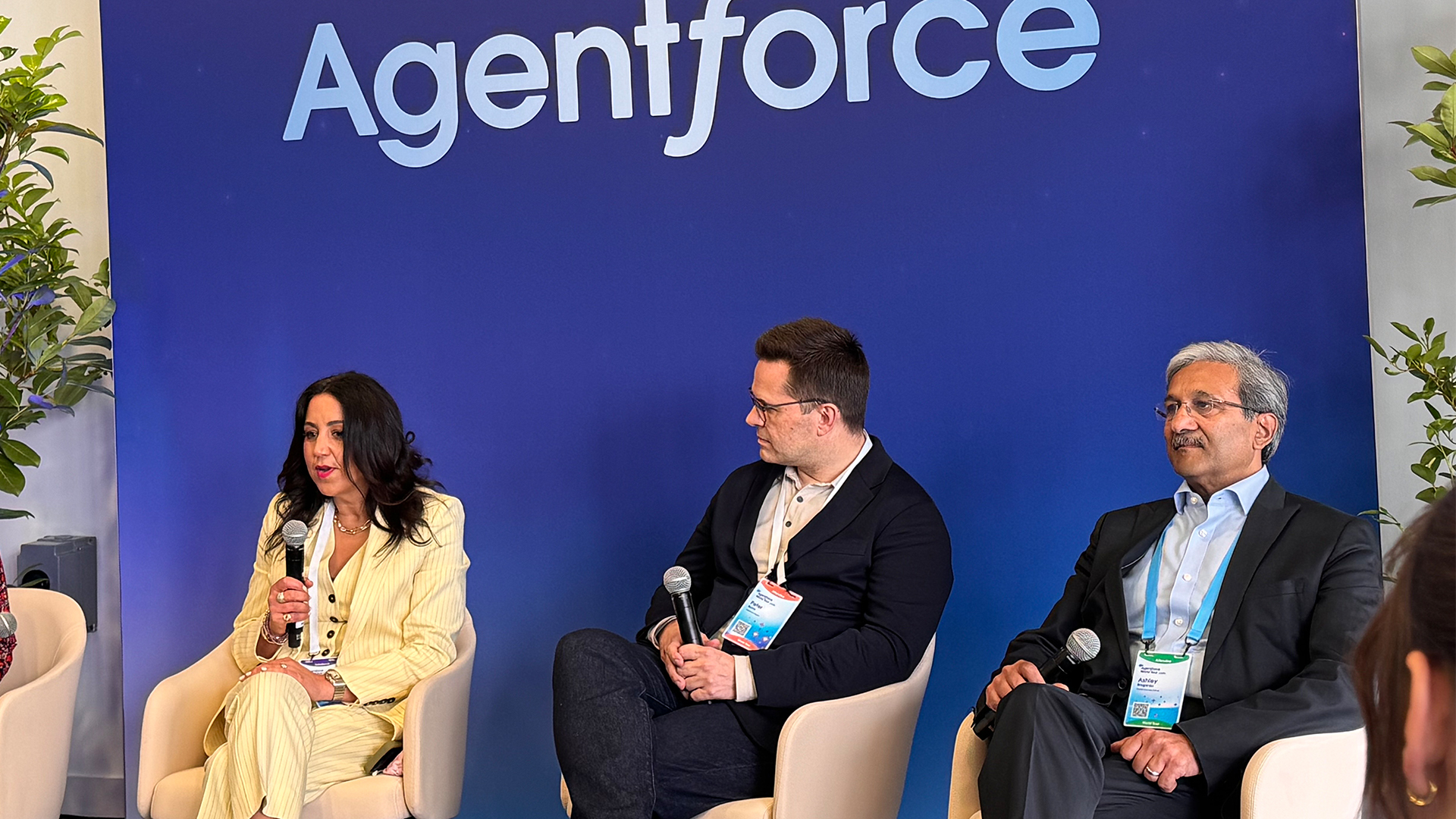 ‘We’ve got some fabulous conditions’: Salesforce UK chief exec Zahra Bahrololoumi touts the country's tech industry potential
‘We’ve got some fabulous conditions’: Salesforce UK chief exec Zahra Bahrololoumi touts the country's tech industry potentialNews The UK remains a “priority market” for Salesforce, according to its regional CEO
